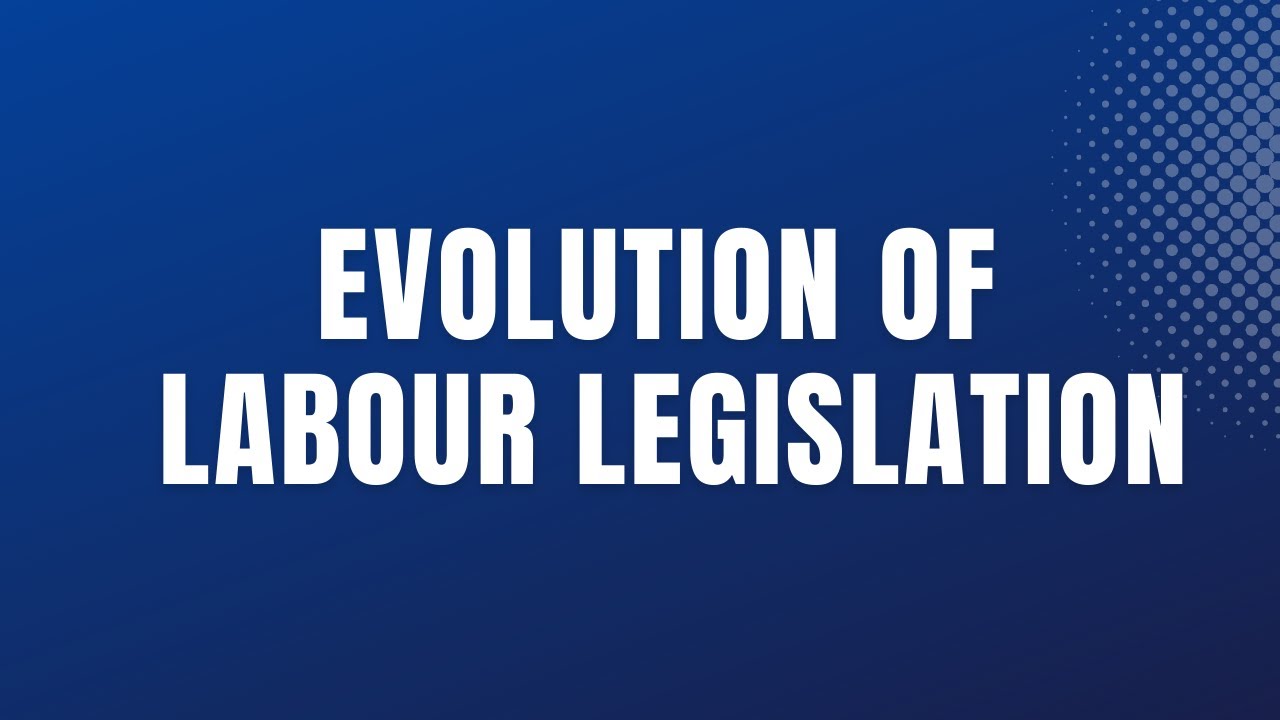The Evolution Of Labor Law And Its Impact On Modern Employment Practices
The evolution of labor law refers to the historical changes in legal systems that govern the relationship between employers, employees, and trade unions. Labor law has a long and complicated history, with different countries and regions having different legal frameworks for protecting the rights of workers.
Author:K. N.Mar 20, 202335.5K Shares546.6K Views

The evolution of labor lawrefers to the historical changes in legal systems that govern the relationship between employers, employees, and trade unions.
Labor law has a long and complicated history, with different countries and regions having different legal frameworks for protecting the rights of workers.
Throughout history, the evolution of labor law has been influenced by social, economic, and political factors, as well as by the changing needs of society. This article explores the evolution of labor law and how it has impacted the modern workplace.
Importance Of Labor Law - From Early Workers' Rights To Modern Employment Law
Labor law, also known as employment law, refers to the set of lawsand regulations that govern the relationship between employers, employees, and labor unions.
It is a crucial component of any modern society as it ensures that workers' rights are protected, and it provides a framework for resolving disputes between employers and employees.
In this article, we will discuss the importance of labor law and its impact on workers, employers, and society as a whole.
One of the primary functions of labor law is to protect the rights of workers. Labor laws outline minimum wage requirements, working hours, overtime pay, and safe working conditions.
They also provide for equal opportunities, non-discrimination, and protection against harassment and exploitation.
These protections help to ensure that workers are treated fairly and are not subject to abuse or exploitation by their employers.
By safeguarding workers' rights, labor law helps to promote social justice and equality, as well as ensure that workers are not subject to unfair treatment.
Another important aspect of labor law is its role in providing a framework for resolving disputes between employers and employees.
Disputes can arise over issues such as wages, working conditions, or wrongful termination. The labor law provides a set of procedures for resolving these disputes, including arbitration, mediation, or going to court.
These processes help to ensure that disputes are resolved fairly and without resorting to violence or other forms of conflict.
They also help to maintain good relations between employers and employees, which is essential for maintaining a productive and stable workforce.
Labor law also plays a crucial role in promoting economic growth and development. By protecting workers' rights and promoting good working conditions, labor law helps to create a stable and productive workforce.
This, in turn, leads to increased economic growth and development. When workers are treated fairly and have job security, they are more likely to be motivated and productive, leading to increased profitability for businesses and economic growth for society as a whole.

EVOLUTION OF LABOUR LEGISLATION
The Evolution Of Labor Law - The Development Of Labor Law
The evolution of labor law refers to the changes in legal frameworks governing the relationship between employers, employees, and labor unions over time.
It has a long and complex history, dating back to the earliest periods of human civilization, and has been influenced by social, economic, and political factors.
The earliest known examples of labor laws can be traced back to ancient civilizations, such as Babylon, where the Code of Hammurabi, one of the world's first written legal codes, provided workers with certain protections and rights.
The concept of labor law continued to evolve through the medieval period when guilds were formed to protect the interests of workers and regulate employment conditions.
During the Industrial Revolution in the 18th and 19th centuries, labor laws took on a new importance, as industrialization led to significant changes in the way that work was organized and carried out.
Workers were subjected to harsh conditions, long working hours, and low pay, leading to the formation of trade unions and labor movements that fought for improved working conditions and greater worker rights.
As a result, labor laws began to take on a more formalized and codified form, with many countries enacting laws to regulate labor relations and protect workers' rights.
In the 20th century, labor laws continued to evolve in response to changing economic and social conditions.
Many countries introduced minimum wage laws, anti-discrimination legislation, and laws governing workplace safety and health.
In addition, labor unions became an increasingly important part of the labor law landscape, as they fought for collective bargaining rights, workplace protections, and improved working conditions.
Today, labor laws continue to evolve in response to changing economic, social, and technological conditions.
The rise of the gig economy, automation, and the growth of the service sector have created new challenges and opportunities for labor law.
Many countries have introduced new laws and regulations to address these challenges, while others are still grappling with how best to balance the needs of employers and employees in a rapidly changing world.
People Also Ask
What Is The History Of Labor Law In The United States?
Labor law in the United States has evolved since the Industrial Revolution, with significant milestones including the Fair Labor Standards Act of 1938 and the National Labor Relations Act of 1935.
What Are The Key Components Of Modern Labor Law?
Modern labor law typically includes provisions for collective bargaining, minimum wage and overtime regulations, workplace safety standards, and protection against discrimination and retaliation.
How Have Changes In The Economy Affected Labor Law?
Changes in the economy, such as the growth of the gig economy and the decline of union membership, have led to debates over how labor law should adapt to new forms of work and employment.
What Is The Future Of Labor Law?
The future of labor law is uncertain, as technological advancements and changes in the economy continue to reshape the workforce. Some experts predict a shift towards more flexible forms of work, while others argue for stronger protections for workers in the face of increasing economic inequality.
Conclusion
In conclusion, the evolution of labor law has been shaped by numerous factors throughout history. These factors include social movements, economic developments, and political changes.
As societies have progressed, labor laws have also evolved to keep up with changing needs and circumstances.
Today, labor laws are an essential component of the modern workplace, providing protection and rights to both employers and employees.
As we continue to move forward, labor laws will likely continue to evolve and adapt to new challenges and changing needs.

K. N.
Author
Latest Articles
Popular Articles
